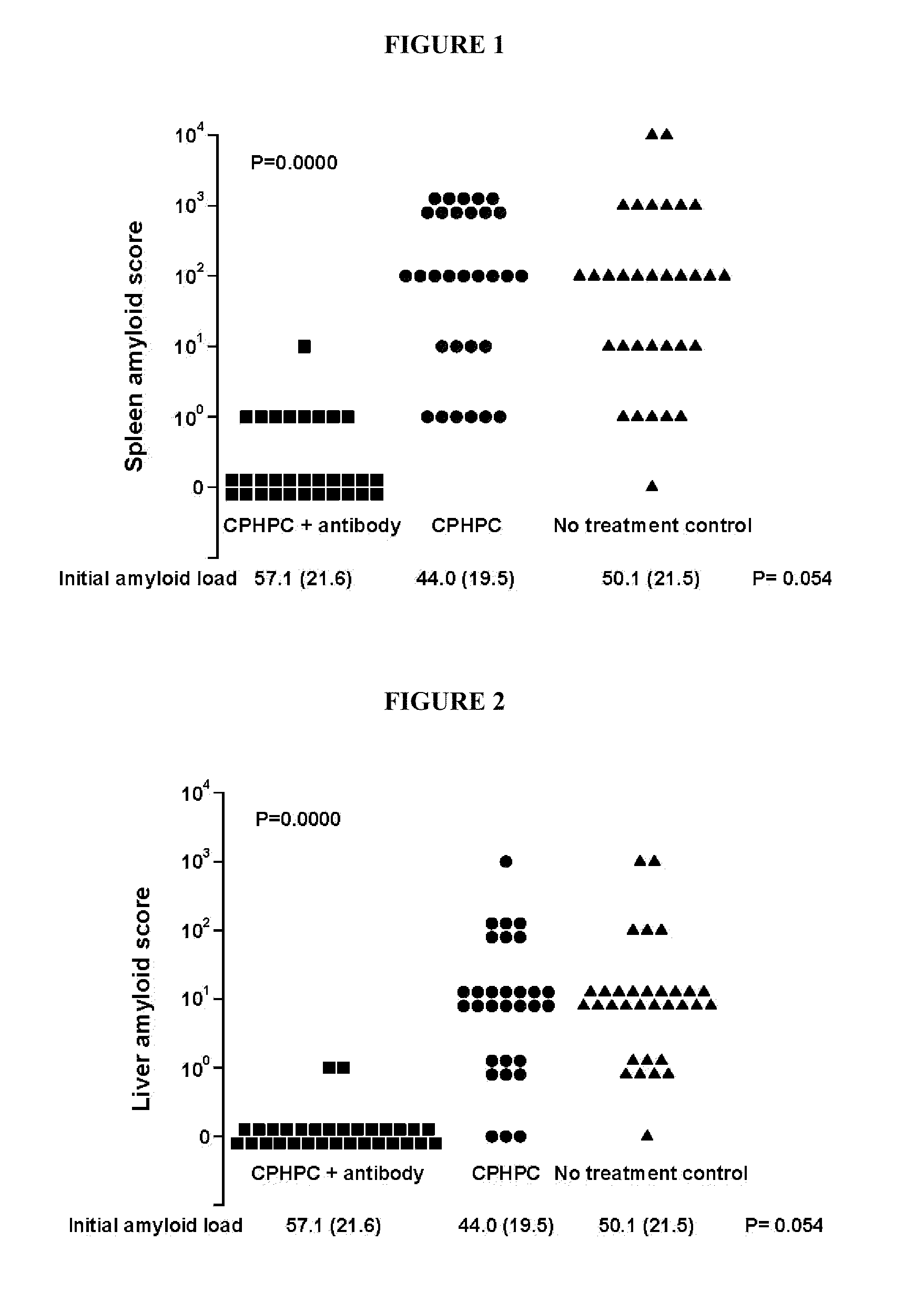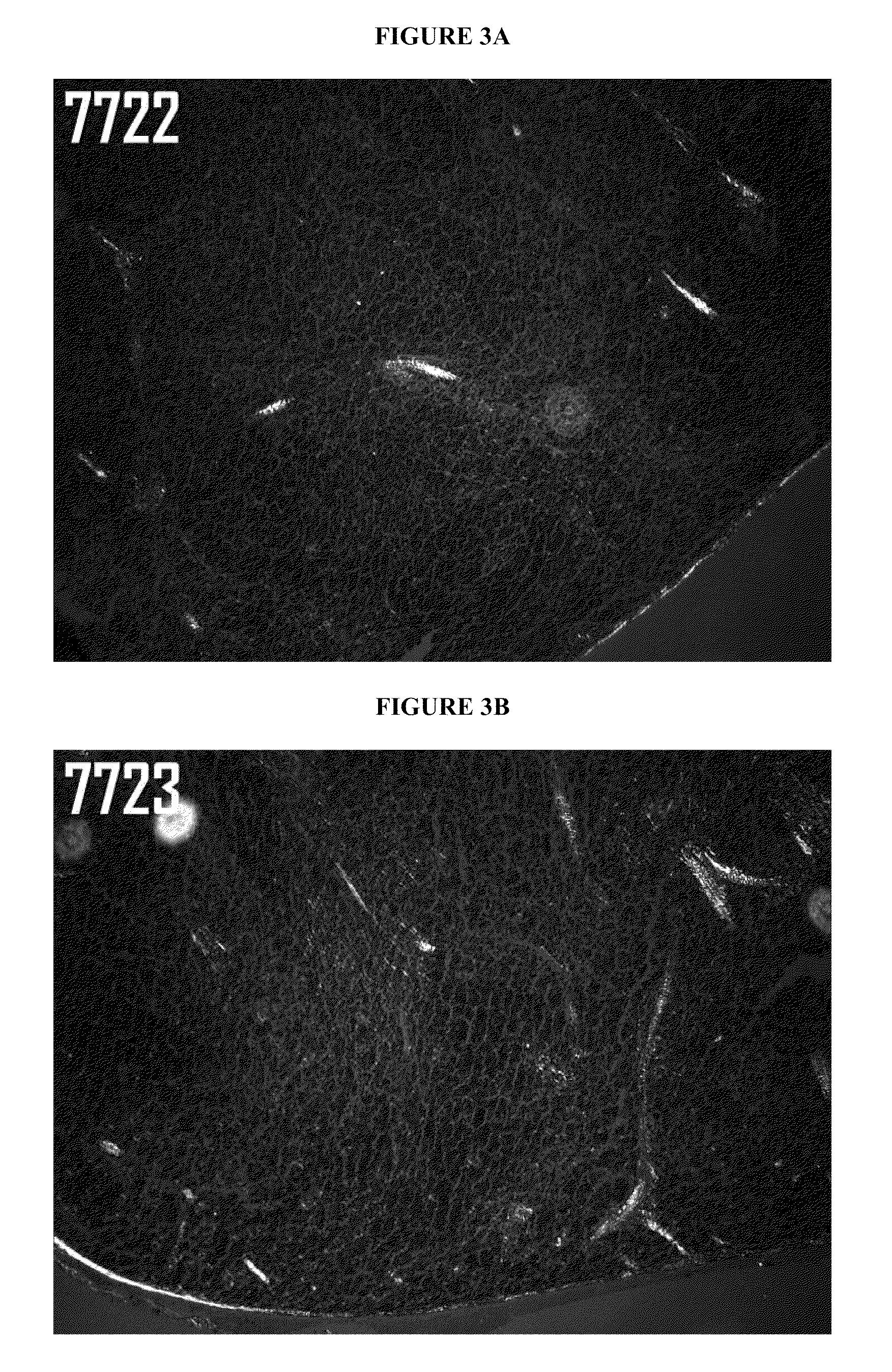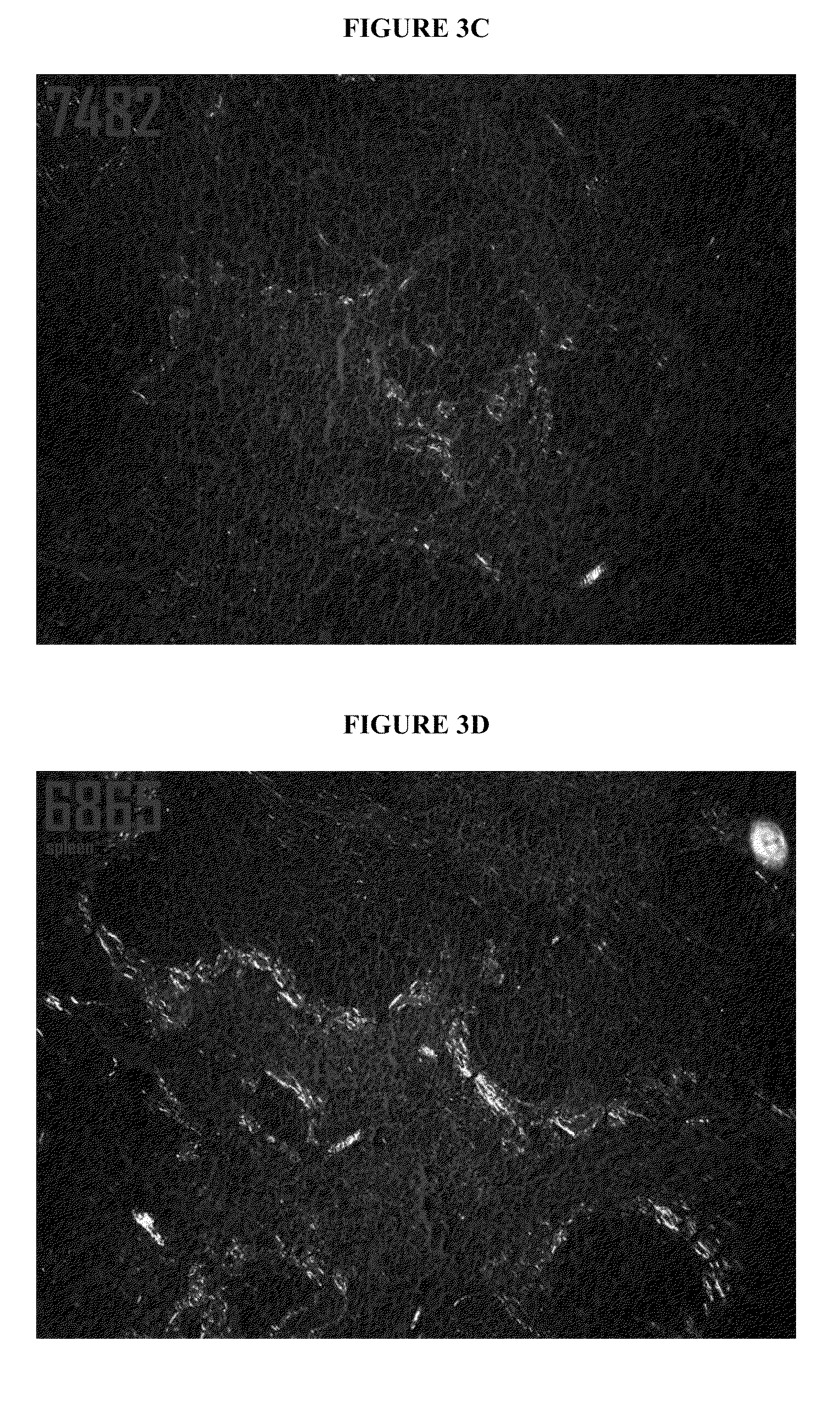Use
a technology of amyloidosis and amyloidosis, which is applied in the field of amyloidosis treatment and/or prevention, can solve the problems of systemic amyloidosis, 1 per 1000 of all deaths, and is difficult to achieve, and achieves the effect of promoting their rapid and extensive regression
- Summary
- Abstract
- Description
- Claims
- Application Information
AI Technical Summary
Benefits of technology
Problems solved by technology
Method used
Image
Examples
example 1
Clearance of Systemic Amyloid Deposits in Transgenic Mice Expressing Human SAP
[0224]In the present study AA amyloidosis was induced in mice by amyloid enhancing factor injection followed by repeated casein injections to elicit persistent acute inflammation and thus sufficiently sustained increase in SAA production to promote AA amyloid deposition in all animals. A unique strain of pure line C57BL / 6 animals was used in which the mouse SAP gene has been deleted13 and a human SAP transgene has been introduced14, 15. They therefore do not express any mouse SAP but do express human SAP and at concentrations significantly greater than those seen in man. We confirmed that all the mice had developed abundant systemic amyloid deposits by demonstrating greatly increased whole body retention of a radiolabelled human SAP tracer compared to untreated control mice with no amyloid. We then treated three very closely matched groups as follows:
Group 1,
[0225](R)-1-[6-[(R)-2-Carboxy-pyrrolidin-1-yl]-6...
example 2
Treatment of a Patient with Systemic Amyloidosis Using CPHPC and Anti-SAP Antibody
[0261]A patient suffering from systemic amyloidosis is diagnosed by clinical examination and routine investigations leading to suspicion of amyloidosis, followed by specific confirmation by expert histochemical examination of biopsies of affected tissues. Radiolabelled SAP scintigraphy is performed in the UK NHS National Amyloidosis Centre at the Centre for Amyloidosis and Acute Phase Proteins in the Department of Medicine of University College London at the Royal Free Hospital. The tissue examination identifies the particular type of amyloid present and the scan, coupled with echocardiographic examination of the heart, shows where the amyloid is present and quantifies its extent. Routine clinical investigations of organ function establish the extent and severity of tissue and organ damage caused by the amyloid deposits, as well as the presence and severity of any underlying primary disease which may h...
example 3
Effect of Different Doses of Anti-SAP Antibody on Amyloid Clearance
Experimental Protocol and Methods
[0265]In an experiment using the same protocol and reagents as described in Example 1 above, different groups of 5 mice each received the following doses of the same IgG fraction of sheep anti-human SAP antiserum as in Example 1: 50 mg (same dose as in Example 1); 10 mg; 2 mg; 0.4 mg; none. The quantity of anti-SAP antibody in these doses was 7 mg, 1.4 mg, 0.28, 0.056 mg and zero respectively.
Results
[0266]In the two groups receiving the highest doses of anti-SAP antibody essentially all the amyloid deposits in the spleen and liver were cleared. In none of the other antibody treated groups was there any reduction in amyloid deposits and there was no difference from the control group which received no antibody.
Discussion
[0267]The minimal effective dose of this particular sheep polyclonal anti-SAP antibody administered in a single dose in the protocol described in Example 1 was greater t...
PUM
| Property | Measurement | Unit |
|---|---|---|
| Composition | aaaaa | aaaaa |
Abstract
Description
Claims
Application Information
 Login to View More
Login to View More - R&D
- Intellectual Property
- Life Sciences
- Materials
- Tech Scout
- Unparalleled Data Quality
- Higher Quality Content
- 60% Fewer Hallucinations
Browse by: Latest US Patents, China's latest patents, Technical Efficacy Thesaurus, Application Domain, Technology Topic, Popular Technical Reports.
© 2025 PatSnap. All rights reserved.Legal|Privacy policy|Modern Slavery Act Transparency Statement|Sitemap|About US| Contact US: help@patsnap.com



